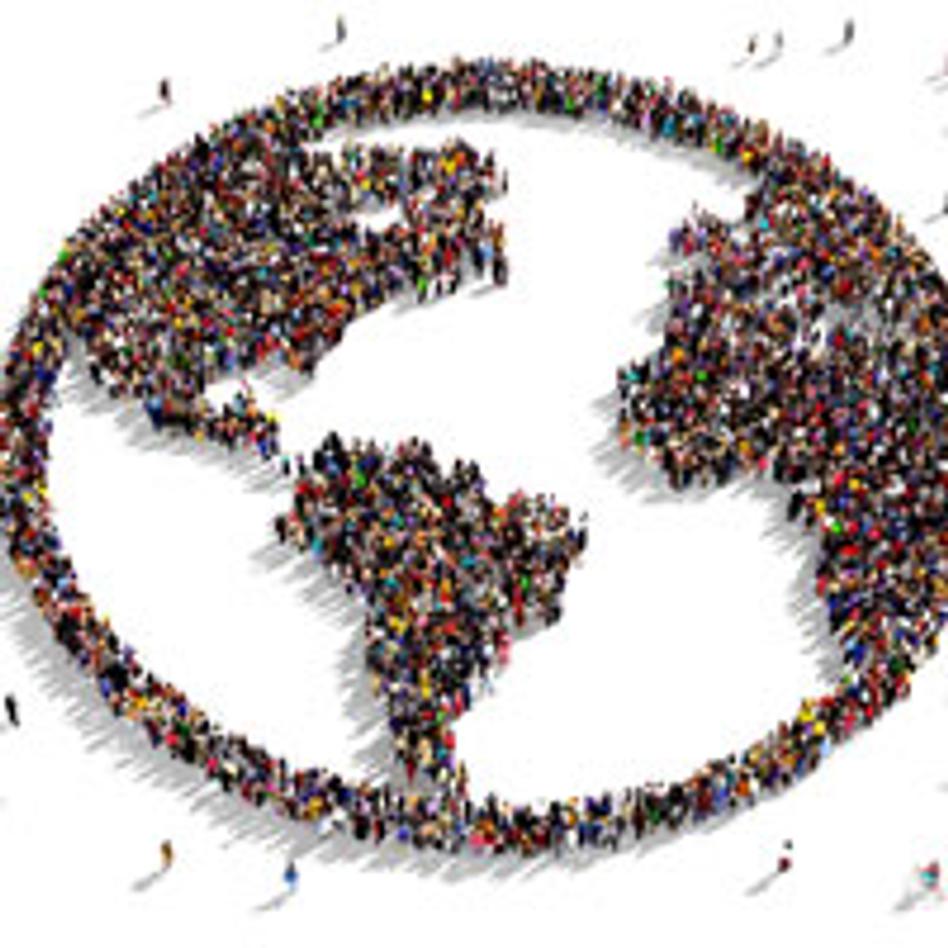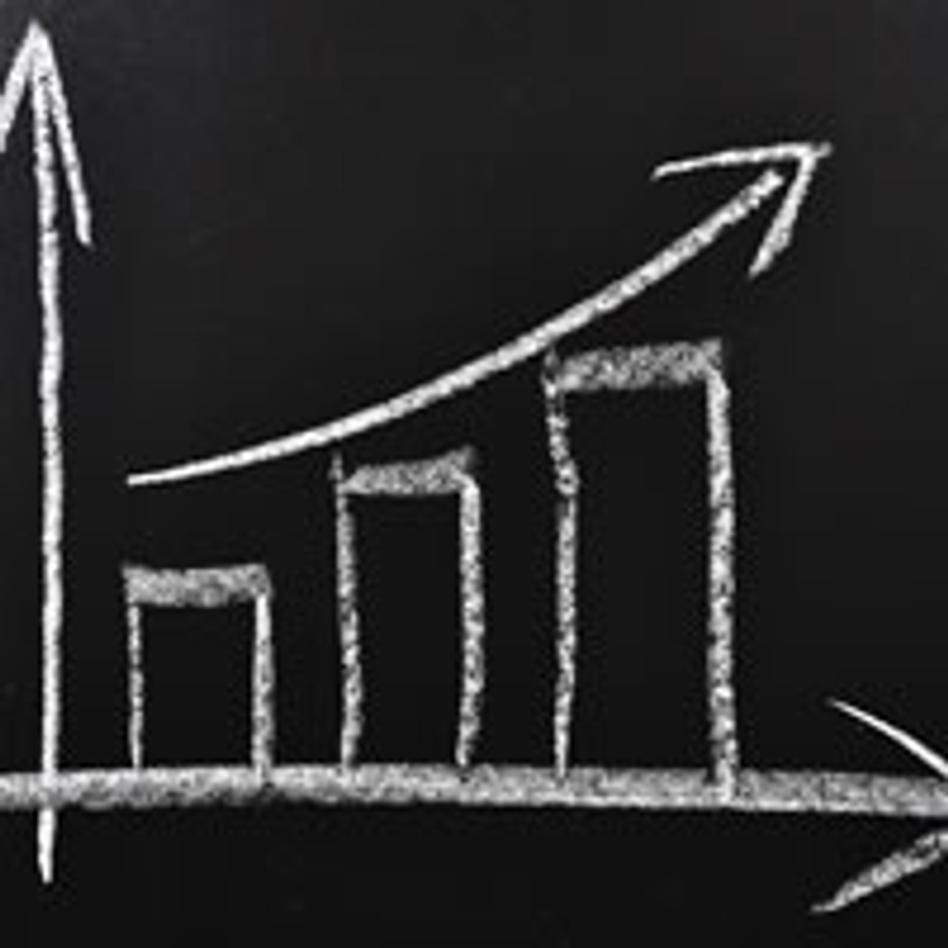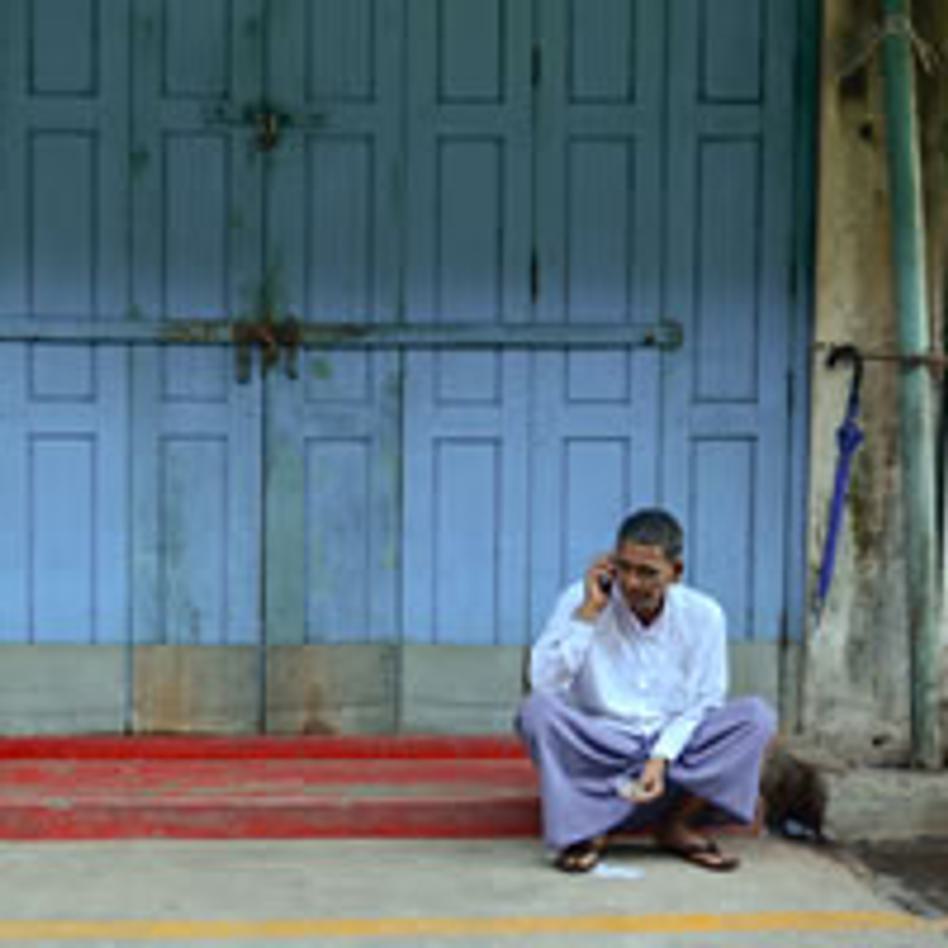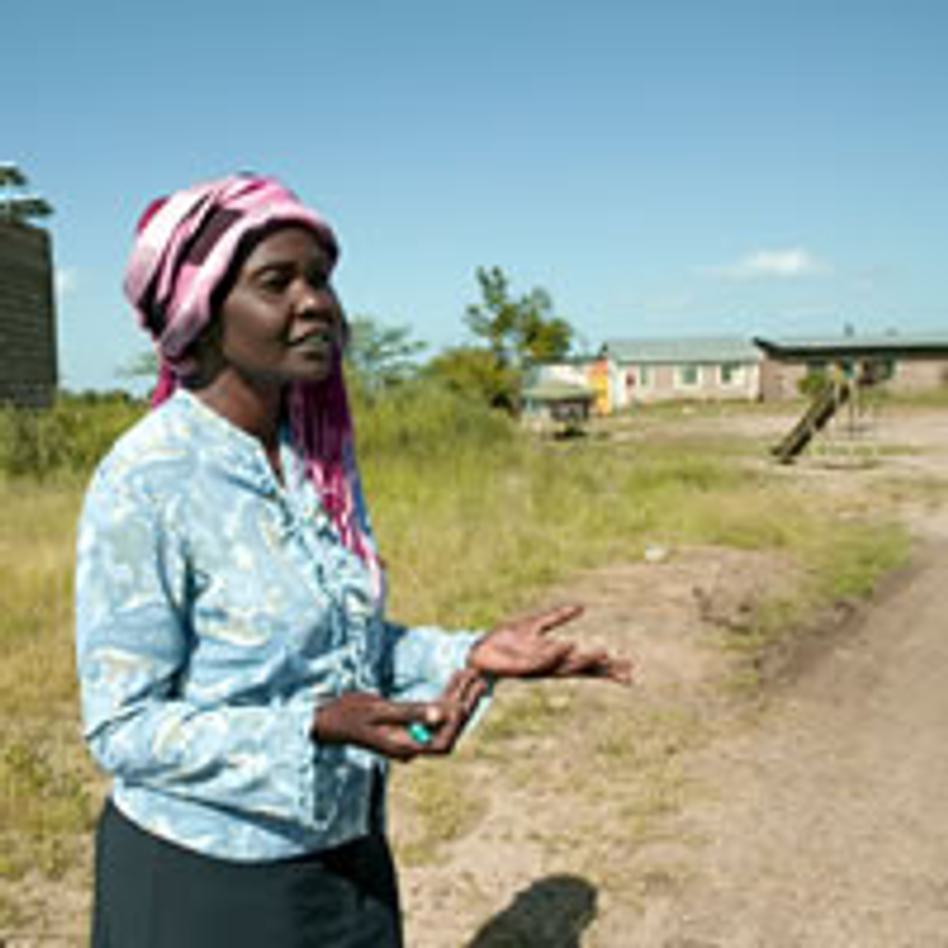Top Ten Business and Human Rights Issues in 2016
10 December 2015

To mark International Human Rights Day 2015, IHRB has published the seventh annual list of the Top 10 Business & Human Rights Issues for the forthcoming year.

Battling Discrimination
Sustained business action key to valuing diverse societies
Companies can and do act against discrimination. But they often face difficult political, legal, and cultural barriers when seeking to do so. Initiatives such as the ILO’s Business Charter on Disability and International Day for the Elimination of Racial Discrimination are reminders of other forms of intolerance, based on gender, sexual orientation, gender identity, religion, caste, and language. Discrimination remains a significant factor in problems around land use and acquisition with continued cases affecting indigenous people.
Acting against discrimination is not just the right thing to do but is also in the commercial interests of companies. Economists have long argued that discrimination is damaging to a competitive economy, and business is hurt with reduction in consumer markets and the pool of potential employees. For example, the World Bank estimated discrimination against lesbian, gay, bisexual, transgender and intersex (LGBTI) communities cost as much as 1.7 per cent of India’s GDP.
Efforts to battle discrimination against LGBTI communities will build in 2016. This is due in part to growing global research on discrimination in the world of work and increased scrutiny of company performance, as can be seen in the US and the UK where one survey of the London Stock Exchange found leading companies did not communicate their professed policy commitments to ‘diversity’ and LGBTI inclusion in annual reports or make stakeholders aware.
Actions by some governments to introduce homophobic legislation have also raised serious questions about how companies should respond. A leading European retailer, following Russian laws banning representation of same-sex relationships, faced negative publicity for removing a catalogue article with a family photograph of such a couple. Business compliance with the law was seen as endorsing state action fostering prejudice.
Companies face dilemmas when caught between local law, unsupportive states and discriminatory local culture and public attitudes, but they have a responsibility to show human rights leadership. Signs of positive action are emerging, such as the initiative of twelve major companies pledging global action on LGBTI issues.
The year ahead will likely see more companies stepping forward to promote diversity and fight prejudice. This includes efforts to address ongoing discrimination and violence against women, often who are precarious underpaid workers, under-rewarded community and family members or vulnerable human rights defenders - despite calls for women’s economic empowerment and clear global business concerns over gender inequality. States and companies must show greater commitment to eliminating LGBTI, gender, religion and other forms of discrimination as an integral part of the responsible business agenda.

Sustaining Momentum
Bold leadership to combat forced labour and human trafficking
The exploitation of an estimated 21 million victims of forced labour worldwide generates illegal profits of US$150 billion according to the ILO. Forced labour can be found in all industry sectors and all locations, with migrant workers, indigenous people and women particularly vulnerable. Domestic workers in private households are frequently abused and are an under-addressed priority.
The term ‘modern slavery’ has mobilised action, but it cannot detract from evidence that forced labour is frequently a more ingrained feature of the mainstream economy than imagined, facilitated by corrupt and unethical recruitment practices. Debate will continue on whether stronger labour market regulation is needed to combine a level playing field for responsible business with effective protection for workers.
A test of international political will in 2016 is whether more countries follow the lead of Niger and Norway in ratifying the ILO Forced Labour Protocol. Agreed by ILO member states in 2014, this legally binding instrument requires governments to prevent forced labour, protect workers and provide remedy for victims. The ILO 50 for Freedom campaign is seeking at least 50 government ratifications by 2020 and supporting policy and enforcement activity.
Some governments have enacted specific legislation focused on tackling forced labour and human trafficking in supply chains. Support and pressure from business and civil society contributed to the UK’s 2015 Modern Slavery Act, which introduced new transparency and reporting requirements, tougher sentences for offenders and stronger compensation of victims. Now that guidance has been issued, from March 2016 companies operating in the UK with over £36 million global turnover will be required to publish annual, board-approved statements to disclose steps they have taken to prevent ‘slavery and human trafficking’ occurring in any part of their businesses. Similarly, progress continues in harnessing the purchasing power of public procurers to develop the market for ethical products and services (such as in amendments to the US Federal Acquisition Regulation).
One way that companies can demonstrate leadership and commitment is by banning recruitment fees paid by workers. Adopting the ‘employer pays’ principle, as a number of leading companies have already done, would be a major step in preventing exploitation and reducing the risk of forced labour. More concerted efforts will be needed in 2016 to make such actions a common standard for all major companies.

Embracing Remedy
From ‘forgotten pillar’ to key tool in identifying, monitoring and preventing impacts
Will 2016 be the year the third pillar of the UN Guiding Principles on Business and Human Rights – on access to effective remedy – finally gains greater traction globally? A number of important initiatives on strengthening judicial mechanisms critical to further action will be launched in 2016.
Following extensive consultations and a global comparative research study, the UN’s Office of the High Commissioner for Human Rights (OHCHR) will complete its Accountability and Remedy Project and set out recommendations to make domestic judicial mechanisms ‘fairer and more effective’. Among other components, the project aims to deliver credible and concrete recommendations on measures to strengthen civil and criminal law sanctions and remedies and overcome financial and other obstacles to bringing legal claims. The project responds to OHCHR’s initial expert study that concluded the overall system of domestic judicial remedies for serious abuses of human rights is ‘patchy, unpredictable, often ineffective and fragile’. Also concluding in 2016 is the International Corporate Accountability Roundtable’s and Amnesty International's Commerce, Crime and Human Rights project. It seeks to identify the challenges and gaps in enforcing criminal laws and the prosecution of businesses at the national level and to develop a framework for governing state practice.
The historic June 2015 G7 statement of strong support for the UN Guiding Principles also singled out National Contact Points (NCPs) under the OECD Guidelines on Multinational Enterprises. G7 leaders committed to strengthening mechanisms providing access to remedies, including NCPs. This means ensuring their own NCPs are effective and will lead by example. The G7 also encouraged the OECD to promote peer reviews and peer learning on the functioning and performance of NCPs. According to the OECD Watch Remedy is Rare report, analysing 250 complaints over the past 15 years, there is a long road ahead. The OECD is soon to launch an NCP action plan and has already begun a peer review process to improve the structure and functioning of NCP's. Between increased G7 attention, the potential financial consequences for businesses with negative NCP determinations, and the focus of an ever widening group of investors on cases before the NCP's, 2016 could be the year NCP's start to demonstrate their value as a business and human rights grievance mechanism.
2016 may also see other types of remedy mechanisms gaining prominence. For example, the draft Colombian National Action Plan (NAP) on business and human rights is the first in the world to highlight the role of business in peace-building. The application of transitional justice concepts to business and human rights NAPs could be the next step.

Big Data, Big Business
Raising awareness of rights implications and ensuring protections
The advent of “big data”, where large datasets are analysed to provide insights into a particular topic, and the “Internet of things”, where an increasing number of devices and appliances are connected to the Internet, means that personal data is the new currency, collected and traded. As a result, implementing safeguards for privacy and other rights becomes more challenging.
There are many benefits of “big data” for consumers as well as public health and society. However, questions remain over how to ensure effective privacy safeguards on the collection, storage, use and sharing of personal data. Innovations like “wearable" technology, which record and store health data, and facial recognition, that makes identification instant, are increasingly becoming standard in our social networking and raise new challenges for the ICT sector. In the years ahead, all companies will effectively become ICT companies due to the reliance on technology to deliver services, such as automobiles, energy and even the oil and gas sector. What's more, cities around the world are already making use of big data to manage traffic, energy, and the day-to-day business of government.
Data, even if anonymised, can identify individuals and reveal many personal details when combined with other datasets. Data can now also be stored indefinitely. Therefore, information collected for one purpose could be put to an unknown secondary use in the future, making it impossible for users to give informed consent. The more data companies collect the more others will want access to it, raising hard questions on how to secure personal information from theft or attacks. High profile cases of data breaches in 2015, including TalkTalk, Ashley Madison and Experian, all signal what is likely to follow in 2016 and beyond. More available data also creates more opportunities for surveillance and profiling, which could lead to discrimination.
At present, there is low public awareness on the part of both business and civil society on how big data can affect the right to privacy. There is minimal guidance available to help companies navigate this issue, and confusion over what kind of data is collected, how it is used and how it is stored. In 2016, IHRB will be exploring meaningful avenues for rights protection in an age of big data across a number of sectors.

Leading by Example
Aligning states’ policies and implementing due diligence as economic actors
As part of the duty to protect human rights from abuses involving non-state actors states should shape the terms of the wider economic game. But with business straddling borders in a more integrated world economy, the challenge is an international one where sovereign states must effectively coordinate policy action to encourage responsible business practices.
Tracking consistency across the rising number of national action plans on business and human rights and fostering constructive UN discussions on the potential for new binding international instruments could provide opportunities to catalyse stronger alignment in 2016. Similarly, the 2016 G7 summit could help consolidate commitments on responsible business and supply chains made in the group’s 2015 statement. And as China hosts the G20, the world’s main economic powers could also map a clearer joint path. The fact that China’s overseas mining investment guidelines are being reviewed with the OECD signals the potential for further action in this area.
States which neglect their own human rights due diligence responsibilities as economic actors themselves also risk serious impacts occurring unabated. These can cover the full spectrum of human rights, as examples highlighted by IHRB and others show.
As well as owning or managing enterprises, states are often major stakeholders in bodies such as sovereign wealth or pension funds and export credit agencies. The state, using taxpayers’ money, is a major purchaser of goods and services from business, with global trade in public procurement worth an annual 1 trillion euros. States also shape the terms under which business partners deliver essential services and public goods (such as health or infrastructure), as well as the increasingly debated public-private partnerships said to be key to achieving the UN Sustainable Development Goals by 2030.
There are opportunities to lead by example in 2016. By April 2016 EU member states must transpose into national law new public procurement Directives that invite more active use by public purchasers of social and human rights-related criteria in tenders, with the potential to largely replace lowest price-based approaches. Similarly, the full set of provisions to tackle forced labour and human trafficking in US federal supply chains, and company approaches to compliance, will also gather pace.
As well as seeing a greater pool of information on official approaches to policy alignment, 2016 will test whether states, through their own conduct as economic actors, can set a strong example for business on implementing ongoing prevention, mitigation and remediation measures.

Righting Climate Wrongs
Business, human rights and climate justice
Climate change is not just an environmental issue – it is a human development and human rights challenge of unprecedented magnitude. Global attention in 2016 will turn to making good on Paris Climate Summit commitments. The time for action is now, as climate change will affect everyone and is already impacting those who are vulnerable, poor, or lack access to resources. They also happen to be the least responsible for climate change. Addressing their human rights is at the heart of the concept of climate justice.
Leadership on climate justice must come from cities, countries, regions, and intergovernmental organisations. Businesses too have a role to play. They cause, contribute to, and are linked through business relationships to greenhouse gas emissions. Earlier this year, the International Bar Association published the report Achieving Justice and Human Rights in an Era of Climate Disruption. Subsequently, a group of human rights and environmental law experts adopted the Oslo Principles on Global Obligations to Reduce Climate Change, enumerating responsibilities of state and business actors.
Climate change is a global phenomenon. Although one company’s contribution to climate change can be minimal, the combined impacts of business activities globally could make a difference. It is this diffused nature of responsibility for adverse climate impacts that makes it particularly hard for businesses to acknowledge their role in seeking climate justice. No one is singularly culpable, yet everyone is responsible.
The year ahead will test whether more businesses can scale up climate due diligence, GHG reporting, as well as innovation for and investment in climate solutions. Some companies are stepping up and taking initiative. For example, Unilever is tackling climate change in its supply chains, and IKEA has launched an initiative that supports communities most at risk. BSR in its We Mean Business report lists actions companies and investors can take to address climate change, while others are forming coalitions, such as the Breakthrough Energy Coalition for clean energy, inaugurated in Paris.
Civil society is actively involved in creative advocacy - conducting research on carbon majors, campaigning for divesture from fossil fuel companies (see Fossil Free), bringing climate litigation using innovative legal pathways, and compelling governments to regulate carbon emissions, including those by business.
The momentum created by the Paris Summit must continue to build in 2016 and beyond. The business and human rights community should do its part. We all are responsible for climate change, so we all have a part to play in fostering climate justice.

Mind the Gap
Implementing the UN Sustainable Development Goals
With an ambitious new global agenda for sustainable development in the form of the UN Sustainable Development Goals (SDGs), adopted in New York in September 2015, attention will shift in 2016 from high-level negotiations to implementation.
The SDGs offer an inspiring and inclusive vision of the future: a world free from poverty, injustice and discrimination and a healthy planet for present and future generations. They also assume a substantial contribution from business as a partner with the potential to contribute in multiple ways to development objectives: as financier, job creator, taxpayer, wealth generator and innovator. But the relationship between business and development – between private gain and public good – is not a straightforward one.
How the business and human rights agenda gains traction, as a crucial approach to implementing the new framework, remains an open question. As the SDGs move from pledges to practice, a wider and better-informed debate is needed around how and in what circumstances business can add the most value; business can be a good partner in delivering on the SDGs but it is not automatically one.
There is a clear opportunity in 2016 for political leadership, to demonstrate that political capital can drive financial capital. The many externalities the current mode of economic growth creates – pollution, unsafe working conditions, uncompensated use of natural resources – need to be internalised. States should reinforce incentives for business to get ahead of the curve and signal to capital markets where investment should be made.
If meeting the SDGs requires business involvement, then making business responsible must be a core part of implementation strategies. The SDGs offer a real opportunity to help normalise and globalise corporate responsibility as a minimum requirement for business operations.
As SDG progress indicators are developed and reporting and review systems established, business performance measures are needed. Public-private partnerships have been earmarked as crucial to the delivery of the SDGs but are already a target of concern. Without transparency and accountability, without clear safeguards on the application of international standards, they risk sidetracking significant public funding without delivering on public goals. Different players, from the World Bank to civil society organisations, as well as IHRB, are now coming forward with proposed partnership principles. The enthusiasm for partnerships as part of strategies to achieve the new agenda for sustainable development needs to be accompanied in 2016 by an SDG Framework for Responsible Business.

Defending Defenders
A role for business in championing civil society
More than sixty governments have passed laws in the past three years to place restraints on the ability of human rights defenders to hold their governments to account for actions that undermine respect for international standards. Among those targeted are individuals and organisations who champion alternate economic paradigms or challenge government policies or business conduct. Some have faced intimidation, surveillance, lawsuits, arrests, and torture.
Twenty years ago, after a trial that failed to meet international standards, the Nigerian Government executed Ken Saro-Wiwa and eight other Ogoni leaders who opposed the activities of Shell in the Niger Delta. The case sparked global awareness of business’ human rights responsibilities beyond the factory walls, leading to the development of standards, advocacy, initiatives, codes of conducts, and eventually a comprehensive UN framework and principles for business and human rights.
Despite some progress over the past two decades, suppression of activists too often continues. The UN has passed a resolution recognising the legitimate role of peaceful activists who call out abusive behaviours, including business actions that undermine respect for human rights. Yet a growing number of governments are also passing new laws to restrain civil society activities.
Human rights defenders are like canaries in a mine. When they campaign against abuses, they highlight society’s fundamental problems, such as lack of accountability, transparency, or the rule of law. Courts have jailed journalists exposing corruption, governments have tried Internet activists, authorities have prevented activists from travelling abroad, and states have cracked down on funding sources of non-governmental organisations. International financial institutions are also under focus. The international community is increasingly paying attention to their cause. At the 2015 UN Forum on Business & Human Rights, there was special focus on human rights defenders and the role of business.
In the year ahead, some governments, businesses, and NGOs will likely sharpen criticism of states that unjustifiably attack human rights defenders, as well as the companies that benefit from such crackdowns and choose to say nothing. With rising concerns over terrorism and the resulting tendency in many countries to emphasise security threats over protecting human freedoms, the road ahead for those who dissent will not be easy. The combined voice of global business will be critical in effectively promoting the legitimate role of individuals and organisations that champion human rights principles and standards in societies around the world.

From Theory to Practice
New levels of human rights transparency and measuring corporate performance
With a push to track progress on implementing business and human rights standards, moves towards greater transparency of company performance will be even more prominent in 2016.
To date, company reporting frameworks – and performance monitoring by investors – have been concerned with environmental, social and governance issues generally, rather than human rights specifically. This has begun to change. The year ahead will see continued uptake of the UN Guiding Principles Reporting Framework, which helps companies demonstrate their implementation of the UN Guiding Principles on Business and Human Rights. Similarly, the Global Reporting Initiative (GRI) is increasingly focused on human rights issues in its activities.
Legislation mandating responsible business reporting is also an emerging trend set to continue in 2016. One of the first such requirements referencing the UN Guiding Principles, by the US government regarding investments in Myanmar, has seen companies such as Coca Cola and Telenor reveal child labour problems and their corresponding prevention and remediation measures. Companies will start reporting in 2016 on compliance with the UK Modern Slavery Act, building on similar legislation in the US state of California. Meanwhile, next December is the deadline for all EU member states to pass national laws introducing non-financial reporting requirements including human rights, applying to around 6,000 large companies.
Despite such advances, accountability challenges remain. A study found 80 per cent of companies failed to meet minimum US supply chain reporting requirements on conflict minerals, undermining efforts by others. Beyond reporting, moves are afoot within the EU to make due diligence itself mandatory, including on conflict minerals, as called for by the European Parliament.
2016 will see the piloting of the Corporate Human Rights Benchmark (CHRB), which seeks to rank companies based on public information prompted by the above and other reporting initiatives. The CHRB will assess the policies, processes and practices of the top 500 globally listed companies in order to drive market-based competitive incentives for change, providing a snapshot for investors, governments, civil society and consumers of companies’ human rights performance.
One challenge inherent to transparency and measurement initiatives is striking the right balance between reporting on implementation of policy commitments through company processes and systems versus assessing performance and outcomes, including company efforts to prevent and address real-world concerns of affected people and ensure access to effective remedies. Another hurdle involves business concerns that more open and substantive information sharing might prompt litigation and high-profile negative campaigns. Nevertheless, there are signs some companies are taking a more forward-looking approach.

Rising to the Occasion
Making 2016 an Olympic year for human rights and mega-sporting events
Mega-sporting events (MSE) will attract the world’s attention in 2016. Will they be a catalyst for stepping up pressure to make human rights an essential consideration in bidding, planning, organisation, delivery and legacy? Will lessons be shared and accountability strengthened across sporting traditions?
In 2016 Brazil hosts the Olympics and Paralympics in Rio de Janeiro and will pass the torch to Japan for Tokyo 2020. Meanwhile, FIFA's governance of world football remains controversial amid corruption allegations, with plans to elect a new federation president in February. The spotlight will likely remain on acute human rights challenges already raised by preparations, in particular, for the 2018 and 2022 World Cups awarded to Russia and Qatar, with a human rights based case recently brought against FIFA.
The lifecycle of mega-sporting events is a business and human rights microcosm. A host of challenges face organisers, from land acquisition, evictions and clearance of homeless people to environmental damage, venue and infrastructure construction infringing workers’ rights and exploiting migrant labourers, as well as restrictions on freedom of assembly, racism and homophobia, and abuses of children during events and concerns over raw materials and merchandise procurement involving sweatshop labour allegations.
Sporting bodies face increased pressure to clean up their acts from brand-conscious commercial sponsors, civil society and union campaigns, and growing media coverage. Signs of positive change emerged in 2015 alongside evidence of how much remains to be done. The International Olympic Committee banned sexual orientation discrimination in its Host City Contract for the 2024 Games but was criticised for not referring to wider human rights issues or to the UN Guiding Principles on Business and Human Rights (UNGPs). FIFA pledged at the OECD to make UNGPs compliance a requirement of future country bids, but whether it can implement this commitment is unclear in view of its institutional uncertainty. Meanwhile, the Commonwealth Games Federation put human rights at the core of its new Transformation 2022 Strategy.
Pressure for a comprehensive new approach is likely to gain momentum in 2016 following the first-ever discussion of human rights and MSEs at the 2015 UN Forum on Business & Human Rights, as well as further high-level dialogues and a joint call by the IOE, ITUC, ILO and OHCHR to promote learning on responsible sporting events and methods of accountability for their delivery.
Trends from Myanmar, Colombia and Kenya
This year, IHRB extended its Top 10 online consultations to engage stakeholders in three countries where IHRB works with partners to advance the business and human rights agenda: Myanmar, Colombia, Kenya.
In preparing the 2016 Top 10 list, additional surveys gathering respondents' business and human rights priorities were undertaken for the first time to identify trends in key countries. Below are some of the priorities that emerged.

Seizing Opportunities
Political change and responsible business in Myanmar
Myanmar was selected because of IHRB’s partnership with the Myanmar Centre for Responsible Business (MCRB), an initiative it co-founded with the Danish Institute for Human Rights in 2013 to promote knowledge, capacity and dialogue on responsible business in the country.
Top 10 consultations, held by MCRB just before the National League for Democracy’s (NLD) November 2015 election victory, identified several major responsible business issues likely to be prominent in Myanmar in 2016.
Land led the list. Myanmar is still coming to terms with opaque land practices that characterised the pre-2011 military government for decades. Since then, some abuses have been remedied, but many others remain. As highlighted by MCRB, a draft Land Use Policy discussed in 2014-2015 is still to be adopted, and once it is, new and revised laws will be needed. These will have to address legal and governance gaps in Myanmar on complex and sensitive issues such as resettlement and indigenous peoples.
Another priority identified in the Top 10 consultations was the situation of human rights defenders. Although the climate for human rights defenders has improved in recent years, human rights organisations voiced concern that 2015 still saw harassment and arrests of workers’ representatives, farmers protesting against land grabs, community leaders challenging destructive mining practices, as well as citizens using social media to express their views peacefully. The National League for Democracy (NLD), democratically elected at the end of 2015, quickly committed to protect human rights and end the arbitrary arrest and imprisonment of peaceful protestors.
Public participation is a final key priority area for 2016. Government and business moves towards more meaningful community engagement and public consultation are still recent, following Western investors entering Myanmar during 2012 in the light of incipient democratic reforms. As Myanmar embarks on a new phase of transition in 2016, a range of challenges and opportunities exist for strengthening public participation in responsible business. The draft environmental impact assessment (EIA) procedures, for example, should make public engagement and full disclosure of information compulsory in many projects. However, they have yet to be promulgated. Civil society also needs support to hold companies to account, and ensure that development strategies benefit local communities.

Advancing the Business Role in Peace-Building
Principled partnerships critical for Colombia
Colombia was selected because it is the location of CREER, IHRB’s regional centre for responsible business in Latin America.
Top 10 consultations undertaken by CREER identified several responsible business issues in Colombia that will be the focus of attention in 2016.
Defining the role of business in peace building will be a key priority for Colombia in 2016. Peace talks in Havana between Colombia’s government and the FARC guerrilla leadership made renewed progress in late 2015, with agreement on the sensitive issue of transitional justice for victims boosting hopes the 50-year armed conflict is close to an end. High-level agreement, however, must be matched by efforts to solidify the ‘territorial’ prospects for sustainable peace on the ground. This means strengthening the rule of law and promoting social cohesion through the beneficial integration of local economies nationally. Commitment to promoting and ensuring enhanced human rights due diligence across business activities, and leading by example, will be crucial in prioritised peace building regions.
Vibrant, responsible business is also essential for continued progress in the demobilisation of guerrillas and their reintegration into society, which was identified as another key priority for the coming year. These groups will need support to become economic actors as entrepreneurs, workers, professionals and local leaders in Colombia, but will also need to show their commitment to respect human rights in their new roles in society.
Access to markets for indigenous peoples and protection from unfair competition is a third important issue for 2016 in Colombia. Indigenous peoples often specialise in handicraft production and reach external markets, bringing livelihood benefits. But their designs and products are being copied by larger manufacturers selling lower-quality, cheaper goods worldwide. Measures to protect indigenous intellectual property should be reflected in free trade agreements as well as state actions to protect property rights.
Climate justice and access to remedy was identified as a final rising topic for Colombia. For example, the El Niño phenomenon causes drought leading to ‘externalisation of costs’ by private power utilities. Energy generation has to rely more on liquid fuels and less on scarcer hydroelectric sources. Despite receiving subsidies to compensate for price differentials in the sources of fuels, these companies are transferring the effect of droughts back to consumers. Privatising benefits and externalising costs shows how climate is having impacts on livelihoods, but also how equitable treatment of its effects is still lacking.

Taking Stock
Responsible business in Kenya at a turning point
Kenya was selected because of IHRB’s Nairobi Process, a multi-stakeholder platform for dialogue aimed at embedding human rights due diligence in the country’s emerging oil sector and providing a springboard for engagement with extractive industries in East Africa.
Top 10 consultations identified several responsible business issues likely to be prominent in Kenya during 2016. Given IHRB’s focus on extractives activities in the region, these industries featured strongly, but the issues highlighted are relevant to the wider business and human rights agenda in Kenya.
Transparency of investment agreements between extractives companies and the state will continue to be a critical issue of debate in 2016, with government capacity to monitor contracts requiring strengthening. This includes contract terms and requirements on land acquisition, environmental protection, local content, and revenues and benefits relating to natural resources exploitation, including in agriculture. Despite presidential commitments, Kenya has not taken significant steps towards making these contracts public or joining the Extractive Industries Transparency Initiative (EITI). Doing so would build public confidence and enable local communities and the general public to demand and monitor access to their share of benefits from the revenues generated.
Land rights will also be a key concern for 2016 as discussions continue on Kenya’s enactment of a Community Land Law. The acquisition of land, compensation and resettlement is more direct for private and public land compared to community land, whereas access to community land raises questions of consultation and just compensation or resettlement. How the government – through the Mining Bill and Petroleum Bill, as well as an anticipated Community Land Bill – envisions land acquisition processes will be of key interest, particularly compensation negotiations that take time to conclude. This raises concerns over how government balances large-scale development initiatives against community rights to access land for livelihoods and receive fair and just compensation.
Balancing investor water needs for industrial activities versus communities' use of water for livelihoods is also a 2016 priority, given increased investment both in extractives and large-scale agriculture, as well as potential amendments to the Water Act. Balancing these issues effectively will be critical to respecting local communities in Kenya and ensuring the benefits of development rather than damages to livelihoods.
Public participation in economic development, throughout the investment cycle, will remain an area of close focus in 2016. Until recently local communities have not been involved in consultations regarding investment projects on their land. Making meaningful community consultations a central part of business decision-making is a key priority, as is strengthening policy and legal frameworks to achieve robust social and economic development.



